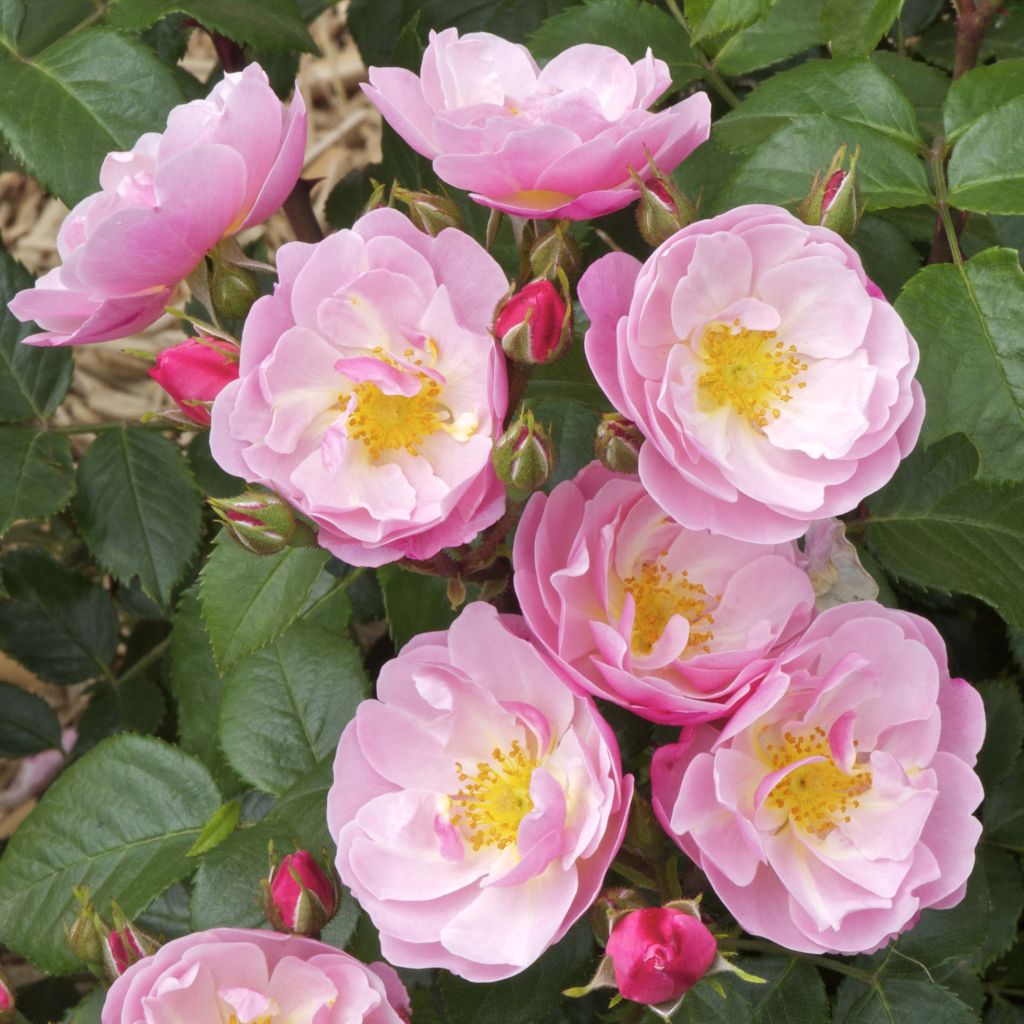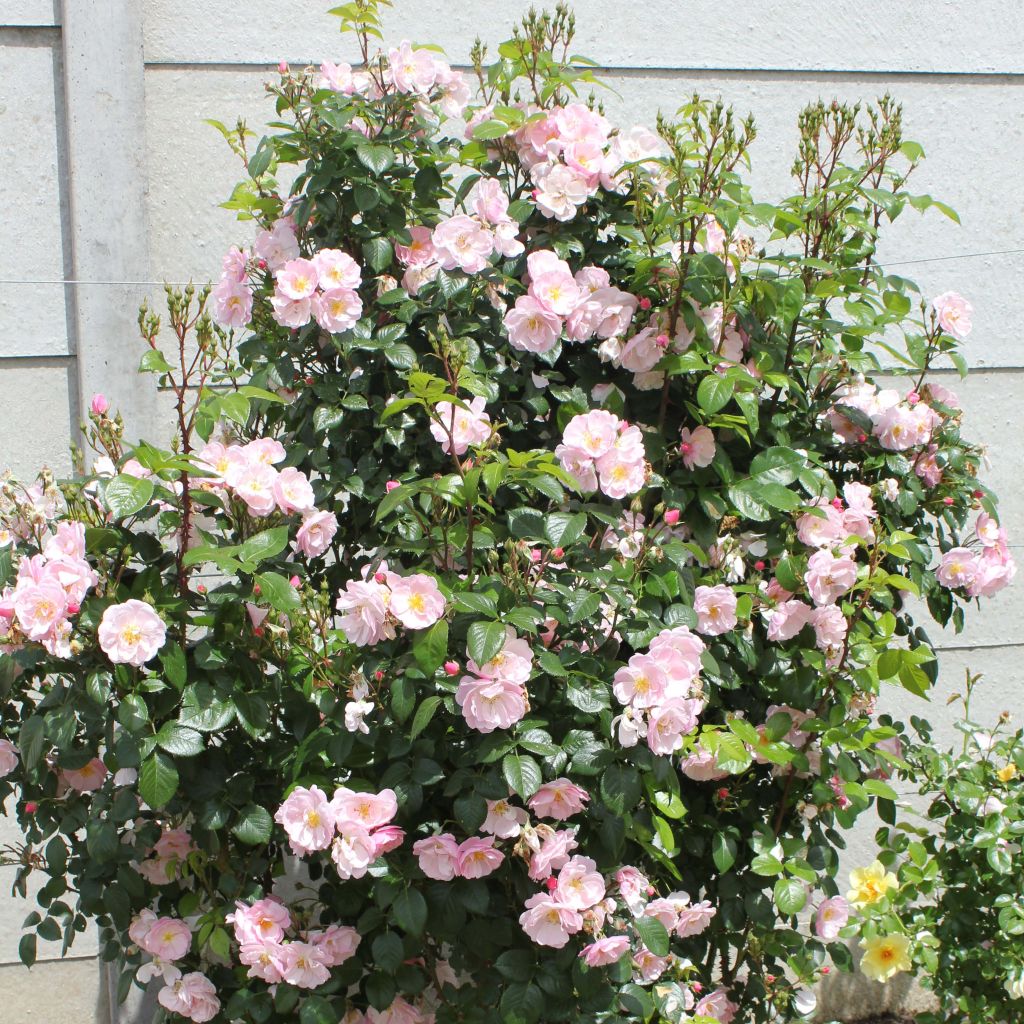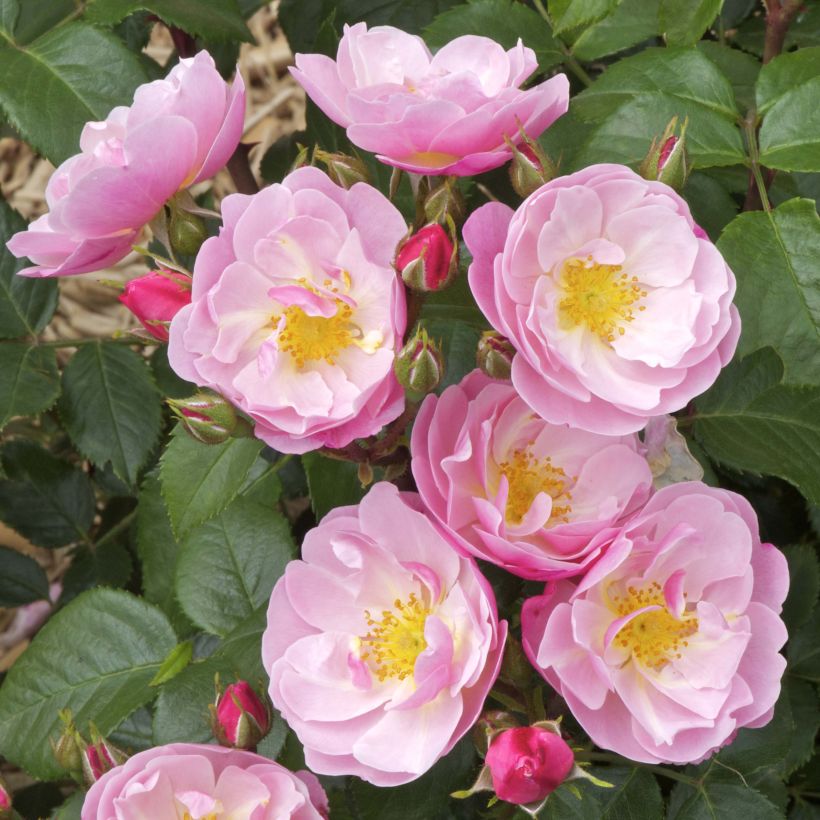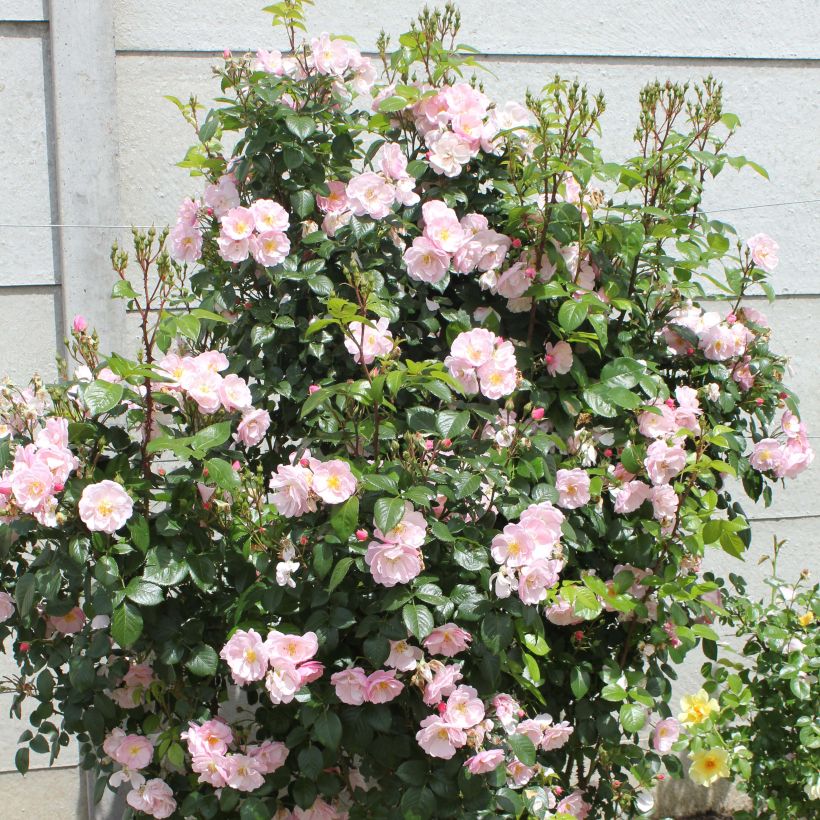

Rosa Utopia - Polyantha Rose


Rosa Utopia - Polyantha Rose


Rosa Utopia - Polyantha Rose
Rosa Utopia - Polyantha Rose
Rosa Utopia® 'Delsimros'
Rose
This item cannot be shipped to the selected country
Delivery charge from €5.90
Delivery charge from €5.90
Delivery to Corse prohibited
More information
Schedule delivery date,
and select date in basket
This plant carries a 24 months recovery warranty
More information
We guarantee the quality of our plants for a full growing cycle, and will replace at our expense any plant that fails to recover under normal climatic and planting conditions.
From €5.90 for pickup delivery and €6.90 for home delivery
Express home delivery from €8.90.
From €5.90 for pickup delivery and €6.90 for home delivery
Express home delivery from €8.90.
Delivery to Corse prohibited: UE law prohibits the import of this plant from mainland France to Corse as part of the fight against Xylella fastidiosa. Please accept our sincere apologies.
More information

Does this plant fit my garden?
Set up your Plantfit profile →
Description
The Bushy Cluster-flowered Rose Utopia is first remarkable for its very bushy appearance and strong growth. Then for the abundance of its endless flowering, which begins in June and only ends with the first frost. These are hundreds of bouquets of small flowers, cream-coloured with a slight pink hue that becomes pastel pink, which overwhelm the dark green and dense foliage of this astonishing disease-resistant polyantha. An excellent variety, holder of the highly demanding German ADR label*, full of charm and suitable for all styles of gardens. Definitely worth discovering!
The Utopia Rose 'Delsimros' is a Delbard creation dating back to 2012, awarded with 7 medals. This polyantha rose quickly forms a rounded, flexible, well-branched bush at the base, with thorny stems, about 90 cm (35in) in all directions, and covered with deciduous foliage that is very healthy, cut into leaflets of a shiny dark green. Its flowering is particularly recurrent and abundant from June to October-November if faded flowers are removed. Its small corollas are semi-double, flat, very tight, and gathered in bouquets of 10 to 15 flowers. The tightly closed rose-colored flower buds open in cream-pink, then bloom into round and well-opened cups, pastel pink around a golden stamen centre.
*This rose is particularly resistant to diseases. It has obtained the highly selective ADR label, awarded to vigorous and floriferous roses that are resistant to diseases, cold, and parasites. These roses have been evaluated for 3 years in 11 rose gardens in Germany, located in various different climatic zones where no treatments are carried out. This label is a guarantee of high quality and hardiness.
Cluster-flowered roses allow for the creation of beautiful small hedges, planted in mixtures in small shrub beds or in front of larger shrub screens. Combine them with abelias, nandinas, or caryopteris for example. They are good companions for peonies, Nepetas, paniculate phlox, and tall baby's breath. The vigor of 'Utopia', its charm that invariably appeals to rose lovers, makes it an interesting variety for all gardens. Its cultivation is within everyone's reach. Its uses are multiple, according to each gardener's desires: in a rose bed, in the company of white varieties ('Marie Pavie', 'Swanny'), or mauve ('Blue Boy', 'Rhapsody in Blue', 'Roman Waltz'), or red, or mixed with easy-to-grow perennials such as perennial geraniums, small-flowered carnations, or blue asters. And its pastel and light roses are absolutely adorable in bouquets!
Report an error about the product description
Rosa Utopia - Polyantha Rose in pictures






Plant habit
Flowering
Foliage
Botanical data
Rosa
Utopia® 'Delsimros'
Rosaceae
Rose
Cultivar or hybrid
Rosa multiflora (3L/4L pot), Rosa canina Laxa (Wrapped bare root)
Other Polyantha clustered Roses
Planting and care
Plant the 'Utopia' rose from November to March, in ordinary, well-tilled, well-prepared, and well-drained soil. Polyantha roses prefer clayey soils, rather heavy than light, and fertile. In soil that is too sandy, too compact, or too dry in summer, it is advisable to incorporate compost, decomposed manure, or leafmould at the bottom of the planting hole. However, this rose fears waterlogged soil in winter. Place it in a sunny position, or at most in partial shade. Roses are hungry plants, so a specific fertiliser will be beneficial at the start of the vegetation season, and regularly throughout the flowering period. To encourage reblooming, regularly remove faded flowers. Polyantha rose varieties are more vigorous and floriferous than large-flowered rose varieties. Therefore, cut the stems by about one quarter of their length (from 4 to 6 buds from the base of the stem) at the end of winter. Always prune above an outward-facing bud to encourage bushiness and prevent branches from intertwining in the centre of the canopy.
Planting period
Intended location
Care
-
, onOrder confirmed
Reply from on Promesse de fleurs
Roses by purpose
Haven't found what you were looking for?
Hardiness is the lowest winter temperature a plant can endure without suffering serious damage or even dying. However, hardiness is affected by location (a sheltered area, such as a patio), protection (winter cover) and soil type (hardiness is improved by well-drained soil).

Photo Sharing Terms & Conditions
In order to encourage gardeners to interact and share their experiences, Promesse de fleurs offers various media enabling content to be uploaded onto its Site - in particular via the ‘Photo sharing’ module.
The User agrees to refrain from:
- Posting any content that is illegal, prejudicial, insulting, racist, inciteful to hatred, revisionist, contrary to public decency, that infringes on privacy or on the privacy rights of third parties, in particular the publicity rights of persons and goods, intellectual property rights, or the right to privacy.
- Submitting content on behalf of a third party;
- Impersonate the identity of a third party and/or publish any personal information about a third party;
In general, the User undertakes to refrain from any unethical behaviour.
All Content (in particular text, comments, files, images, photos, videos, creative works, etc.), which may be subject to property or intellectual property rights, image or other private rights, shall remain the property of the User, subject to the limited rights granted by the terms of the licence granted by Promesse de fleurs as stated below. Users are at liberty to publish or not to publish such Content on the Site, notably via the ‘Photo Sharing’ facility, and accept that this Content shall be made public and freely accessible, notably on the Internet.
Users further acknowledge, undertake to have ,and guarantee that they hold all necessary rights and permissions to publish such material on the Site, in particular with regard to the legislation in force pertaining to any privacy, property, intellectual property, image, or contractual rights, or rights of any other nature. By publishing such Content on the Site, Users acknowledge accepting full liability as publishers of the Content within the meaning of the law, and grant Promesse de fleurs, free of charge, an inclusive, worldwide licence for the said Content for the entire duration of its publication, including all reproduction, representation, up/downloading, displaying, performing, transmission, and storage rights.
Users also grant permission for their name to be linked to the Content and accept that this link may not always be made available.
By engaging in posting material, Users consent to their Content becoming automatically accessible on the Internet, in particular on other sites and/or blogs and/or web pages of the Promesse de fleurs site, including in particular social pages and the Promesse de fleurs catalogue.
Users may secure the removal of entrusted content free of charge by issuing a simple request via our contact form.
The flowering period indicated on our website applies to countries and regions located in USDA zone 8 (France, the United Kingdom, Ireland, the Netherlands, etc.)
It will vary according to where you live:
- In zones 9 to 10 (Italy, Spain, Greece, etc.), flowering will occur about 2 to 4 weeks earlier.
- In zones 6 to 7 (Germany, Poland, Slovenia, and lower mountainous regions), flowering will be delayed by 2 to 3 weeks.
- In zone 5 (Central Europe, Scandinavia), blooming will be delayed by 3 to 5 weeks.
In temperate climates, pruning of spring-flowering shrubs (forsythia, spireas, etc.) should be done just after flowering.
Pruning of summer-flowering shrubs (Indian Lilac, Perovskia, etc.) can be done in winter or spring.
In cold regions as well as with frost-sensitive plants, avoid pruning too early when severe frosts may still occur.
The planting period indicated on our website applies to countries and regions located in USDA zone 8 (France, United Kingdom, Ireland, Netherlands).
It will vary according to where you live:
- In Mediterranean zones (Marseille, Madrid, Milan, etc.), autumn and winter are the best planting periods.
- In continental zones (Strasbourg, Munich, Vienna, etc.), delay planting by 2 to 3 weeks in spring and bring it forward by 2 to 4 weeks in autumn.
- In mountainous regions (the Alps, Pyrenees, Carpathians, etc.), it is best to plant in late spring (May-June) or late summer (August-September).
The harvesting period indicated on our website applies to countries and regions in USDA zone 8 (France, England, Ireland, the Netherlands).
In colder areas (Scandinavia, Poland, Austria...) fruit and vegetable harvests are likely to be delayed by 3-4 weeks.
In warmer areas (Italy, Spain, Greece, etc.), harvesting will probably take place earlier, depending on weather conditions.
The sowing periods indicated on our website apply to countries and regions within USDA Zone 8 (France, UK, Ireland, Netherlands).
In colder areas (Scandinavia, Poland, Austria...), delay any outdoor sowing by 3-4 weeks, or sow under glass.
In warmer climes (Italy, Spain, Greece, etc.), bring outdoor sowing forward by a few weeks.




















































